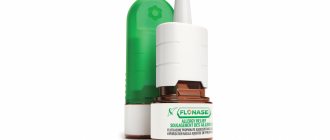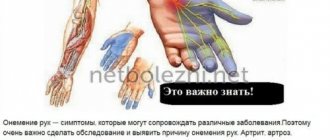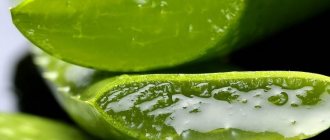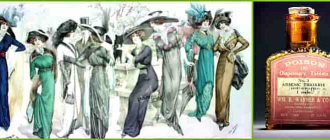What medications are used to treat sinusitis?
Recovery from sinusitis depends on choosing the right combination of medications: if the wrong medications are selected, the acute stage of the disease can become chronic and significantly worsen the quality of life of both the child and the adult. The selection of drugs for sinusitis should be trusted only to the attending physician. The course of treatment may include local or systemic antibiotics, antihistamines, pain relievers and antipyretics, as well as sea water-based remedies for sinusitis and sinusitis, which help thin mucus and flush out harmful microorganisms and allergens from the nasal cavity.
A special place in the treatment of sinusitis is occupied by the use of vasoconstrictors. This group of medications, in the form of drops or sprays, helps relieve swelling and reduce mucus formation. Vasoconstrictor medications for sinusitis and other forms of sinusitis help relieve nasal congestion, which causes significant discomfort and interferes with normal breathing. Also, as part of the comprehensive treatment of sinusitis, it is recommended to use mucous moisturizers. Moisturizing nasal sprays have a more gentle effect and have clear advantages compared to traditional vasoconstrictor medications.
How to treat sinusitis: doctors named the most effective nasal remedies and tablets
Treatment should ensure the drainage of fluid (pus, mucus) from the affected maxillary sinus and relief of inflammation. To reduce the swelling of the nasal mucous membranes that occurs during the inflammatory process, you need to use vasoconstrictor drops.
Examples of effective vasoconstrictor, decongestant drops for sinusitis:
- Farmazolin;
- Noxprey Active;
- Tizin Xylo;
- Lazorin;
- Eucazoline Aqua.
If a person has severe inflammation, then to relieve it, the doctor may recommend a nasal spray with corticosteroids, for example:
- Avamis;
- Flix.
Often with sinusitis there is an increased body temperature. To reduce it, you need to stay in bed, drink plenty of water and take an antipyretic. The safest medicine that reduces fever is paracetamol; it is the main active ingredient in many drugs. Ibuprofen can also be used against fever. However, before choosing a drug, you should consult your doctor.
One of the causes of sinusitis may be a bacterial infection. Antibiotics are used to combat it. First, the doctor determines the factor that provoked the inflammation of the maxillary sinuses, and if it was bacteria, he prescribes antibacterial agents.
The best antibiotics for sinusitis in tablet form:
- Ciprofloxacin;
- Augmentin
- Clarithromycin;
- Levofloxacin;
- Amoxil;
- Macropen;
- Sumamed.
In addition to drug treatment, the doctor may also prescribe physical therapy, for example:
- Light therapy (sollux, Minin lamp) . Sollux provides treatment using a special lamp with infrared radiation. It is installed at a distance of 50-100 cm from the patient and the rays are directed to the problem area. The procedure lasts 15-30 minutes, and the course of therapy is designed for 10-15 sessions. The principle of using the Minin reflector is approximately the same, only it emits blue light.
- UHF therapy . The idea behind this type of physiotherapy is to use ultra-high frequency electromagnetic fields, hence the abbreviation UHF. It can be thought of as a heat treatment that penetrates problem areas. UHF therapy relieves vascular spasm, reduces pain, and also has an anti-inflammatory effect. As a rule, before starting a session it is recommended to use vasoconstrictor drops.
- Electrotherapy (diathermy) . During this procedure, high frequency current is applied. It penetrates human tissue and causes a thermal effect. For sinusitis, such electrotherapy can be used only if there is positive dynamics and good outflow of the contents of the maxillary sinuses.
Diathermy and all of the above methods should be prescribed exclusively by a doctor, taking into account the characteristics of the patient in each specific case.
In case of sinusitis, it is very important to rinse the nasal cavity with antiseptic solutions. It is safest to use solutions that contain sea salt.
The following products can be used to rinse the nose:
- Aqua Maris;
- Marimer;
- Apicold propo;
- Zilch;
- Cuckoo.
After rinsing, if the sinusitis is caused by a bacterial infection, you should use nasal drops or a nasal spray with an antibiotic. The most striking example of such drugs is Isofra.
Herbal medicines are also used to treat rhinitis. The most famous of them is Sinupret. It reduces swelling of the mucous membranes, relieves inflammation and improves the outflow of purulent or serous contents of the maxillary sinuses. In addition, the active components of the drug suppress the reproduction of various viruses.
All the medicines presented can be used to treat sinusitis at home, of course, subject to the doctor’s instructions. Physiotherapeutic procedures must be performed in a specially designated room in the hospital.
Before choosing a medicine to combat inflammation of the maxillary sinuses, you need to contact a specialized specialist. He will prescribe the most effective drug and, if necessary, prescribe physical therapy.
Rinomaris® for the treatment of sinusitis
Rinomaris® is a modern vasoconstrictor drug in the form of a nasal spray that helps to quickly cope with nasal congestion.
It contains two complementary components: xylometazoline, which constricts the vessels of the nasal mucosa and eliminates its swelling, and a solution of Adriatic Sea water. Microelements of sea water help thin nasal mucus and make it easier to remove, which helps prevent mucus from stagnating in the nasal cavity and preventing the creation of favorable conditions for the proliferation of bacteria. Thus, Rinomaris® allows you to cope with nasal congestion and prevent the development of complications of the disease (sinusitis or otitis). The drug has a long-lasting effect (10–12 hours) and begins to work within a few minutes after injection. The bottle is equipped with a special 3K® dosing system, which ensures sterility and allows no preservatives to be used. Rinomaris
is an innovative remedy for relieving nasal congestion, which belongs to the so-called.
“new generation” of drugs for the common cold. To learn more
Times of stagnation
Sinusitis, or, as doctors call it, maxillary sinusitis, is an inflammation of the maxillary sinus. It is this sinus that is most vulnerable to viruses and bacteria, since it is located very close to the nasal cavity and is connected to it by a special opening (ostium), through which pathogenic microbes can easily penetrate into the sinus.
All nasal sinuses are covered with a special epithelium. It has microvilli on its surface, the so-called cilia, which promote the secretion produced by the sinus, or, more simply, mucus, in the direction of the anastomosis. If this mechanism is disrupted, then secretion accumulates, infection and inflammation occur. This condition most often occurs against the background of a cold caused by a viral infection, but the development of bacterial sinusitis is also possible.
Of course, not always and not everyone has a common runny nose and ends up with sinusitis. Those most at risk are people with a deviated nasal septum, nasal polyps, those who suffer from vasomotor (neurovegetative), allergic or some other type of rhinitis, as well as children with enlarged adenoids. A foreign body in the sinus can also provoke sinusitis (for example, when treating upper teeth, dental material often gets into the sinus).
How to avoid recurrence of sinusitis in a child after a puncture? More details
How to distinguish sinusitis from a runny nose
Unlike a common runny nose, sinusitis is often accompanied by a temperature (sometimes quite high), in addition, the patient suffers from aching headaches and facial pain in the sinuses, and a feeling of heaviness appears in the area of the bridge of the nose and the teeth of the upper jaw.
Question and Answer
Is it true that improper nose blowing can lead to sinusitis? Usually all these troubles are accompanied by difficulty breathing and mucus from the nose. But if with a normal runny nose the discharge is usually clear, watery and odorless, then with sinusitis the mucus becomes thick, acquires a yellow-green tint and a specific smell. This is already purulent discharge, which indicates the addition of a bacterial infection and the development of sinusitis.
Rhinitis
Rhinitis, or common runny nose
, is a well-known inflammation of the mucous membrane of the nasal cavity. Rhinitis is caused by an infection or harmful environmental factors. In the first case, the disease is provoked by bacteriophages and pathological bacteria. In the second case, the disease may be the result of a person spending a long time in the cold or in places unfavorable for air pollution. Rhinitis is often a concomitant disease with influenza, measles, allergic manifestations, scarlet fever and other diseases.
Why does acute rhinitis become chronic?
Rhinitis can be acute or chronic. With proper and timely treatment, acute rhinitis goes away quickly - from several days to two weeks. If treatment is not carried out or is carried out incorrectly, the pathology can become chronic, and it will no longer be possible to get rid of it completely. It will periodically bother a person with exacerbations that occur against the background of stress, hypothermia, exposure to another illness, etc. Also, the chronic form occurs due to the patient’s constant presence in an aggressive environment, as well as due to circulatory disorders or due to difficult working conditions.
Symptoms of chronic rhinitis
The following manifestations are characteristic of chronic rhinitis:
- constantly stuffy nose,
- labored breathing,
- decreased sense of smell,
- purulent discharge
- dry crusts in the nose.
Let us note the following types of chronic rhinitis.
Vasomotor form of chronic rhinitis
The vasomotor form of rhinitis occurs due to a violation of neuro-reflex reactions that determine the response to external stimuli from the environment. Treatment is long and difficult.
Often, patients suffering from BP try to solve the problem of a stuffy nose on their own: daily they instill the nose with vasoconstrictor drops or spray sprays, which gives a short-term effect of free breathing. But over time, the body gets used to the medicine and no longer reacts to it, and meanwhile the nasal mucosa becomes thinner, which leads to atrophy of the mucous membranes. Therefore, such patients must be registered and under the supervision of an ENT doctor who will choose the right course of treatment!
Allergic form of chronic rhinitis
The allergic form of rhinitis occurs due to excessive sensitivity of the nasal mucosa to irritating influences. It often has a seasonal nature (an allergic reaction to the flowering of certain groups of plants - hay fever) or is a reaction to the smallest flakes of the skin of domestic animals (cats, dogs, hamsters, etc.). It is not completely treatable, but attacks of an allergic reaction can be stopped. It occurs in both adolescents and adults. Most often, AR goes away in the absence of an allergen irritant nearby, or with age.
Even a common runny nose should not be treated on your own: you should contact an ENT specialist. Timely and correct treatment of rhinitis is the prevention of all sinusitis. With improper treatment or its absence, rhinitis can develop into sinusitis and then into its dangerous subtype - sinusitis! Sign up for a consultation with an ENT specialist in St. Petersburg: +7
And
+7
Do no harm!
Some remedies that are used for sinusitis can do more harm than good, especially if used without a doctor’s recommendation. Let's talk about some of them.
Physiotherapy . Physiotherapy for sinusitis is not the main one; it is prescribed according to indications as an additional method. Laser therapy, magnetic therapy, inhalations, high-frequency currents, and ultraviolet radiation are often used. But if you have any physiotherapy device at home, you should consult your doctor before using it. The fact is that in some cases, especially if pus accumulates in the sinuses and does not come out, heating and other physical procedures can increase inflammation and cause complications. For the same reason, you should not warm up your sinuses with hot eggs or resort to steam inhalations.
Vasoconstrictor drops . They are almost always used for sinusitis, but only in short courses - no longer than 5 days. Long-term use of vasoconstrictor drops harms the nasal mucosa and can lead to addiction, when the drops provide relief only for a few minutes, after which the nose becomes stuffy again. As a result, a person ends up in a vicious circle - the more often he uses the drops, the worse his nose can breathe, which means that an increasingly larger dose of medication is required.
How can birch buds help with sinusitis? More details
Rinse the nose with a solution of sea salt . This procedure improves the flow of mucus from the sinuses, so it is often prescribed for sinusitis. You can make your own saline solution from components purchased at the pharmacy (sea salt and drops of iodine), or purchase ready-made forms. To irrigate the nasal cavity, it is better to use special spray bottles with a fine spray or a more powerful jet, which is directed into each half of the nose for 10 seconds. But keep in mind that nasal rinsing should not be done under pressure, using an enema or syringe. And most importantly, rinsing, like other treatments, should be prescribed by a doctor. He will also determine the duration of the procedure. After all, if you use a saline solution for too long, it will lead to the opposite effect - irritation of the mucous membrane, increased swelling and nasal congestion.











